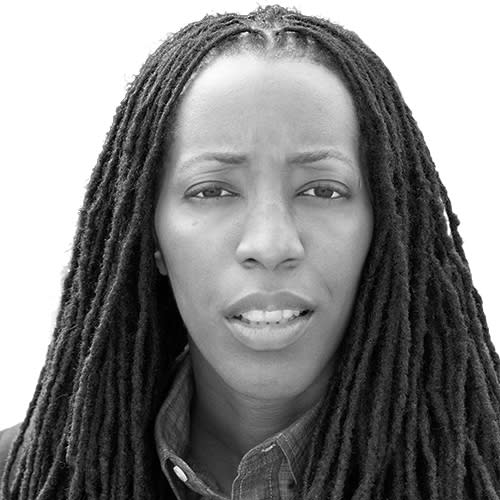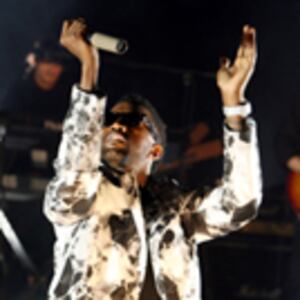In the last two months, I’ve read many stories celebrating the 50th anniversary of hip-hop. Stories of how teenagers who grew up in New York City harnessed nothing but their talent to create a cultural phenomenon that captivates the globe. Hip-hop’s cultural power is undeniable, but the story people don’t know is that the children who created this global juggernaut attended school in the shadow of the school reform movement that punished them for the very creativity that hip-hop expressed.
Born in 1979, I am a card-carrying member of the hip-hop generation. I started school when hip-hop was making its way into the American mainstream. My big brother, 12 years my senior, introduced me to hip-hop. Kurtis Blow, Salt-N-Pepa, Kool Moe Dee, and The Fat Boys blasted nonstop from his bedroom. I’d kneel by his door, hoping he would play my favorite songs more than once so I could memorize all the words. Hip-hop was all around me, influencing every part of my life. My clothes, hair, sneakers, walk, talk, and ideas about the world were being shaped by hip-hop. It was my everything, and each kid that looked like me in my Black neighborhood in upstate New York spoke in the language of hip-hop. At home, on our block, in our neighborhoods, we were in sync. But when we went to school, the heartbeat of hip-hop that proudly blasted from every corner of our neighborhoods could not reach our schools or our teachers.
We made beats and they told us to stop banging on the lunch tables. We were poets and writers, and they told us to stop rapping. We freed our minds and bodies through innovative movement, and they told us to stop popping and locking. We thought we were representing our pride and beauty through fashion, and they told us to turn our clothes inside out or leave school altogether.
In the ’80s and ’90s, presidents, first ladies, law enforcement officers, politicians, and the media called young Black kids like me crack babies. Thugs. Super predators. And they used our music, our youth culture, to reinforce these labels, not just outside of school but, more perniciously, inside school. The stereotypes that let police brutalize us in our neighborhoods became the same rationale they used to label us in school. We were no longer children but pre-criminals. Schools were no longer schools but pipelines to prison where white America felt young, hip-hop-loving Black kids would ultimately wind up anyway. The school reform movement used our cultural and artistic creation of hip-hop to strip us of the right to be children in school.
In 1982 President Roland Reagan declared a War on Drugs. This was code for a war on hip-hop because hip-hop was seen as expressing the values of the street. Hip-hop was undeniably Black, loud, cool, and sexual as it gave poetic voice to the condition of being Black in America. School reform made it clear that white America wasn’t interested in seeing us with nuance, all they saw when they looked at us were potential gang members, drug users, teen mothers, and drug dealers. No one was interested in the how or why of a young Black person. In school, we weren’t learners, artists, poets, and budding scientists: As children we already had our feet on the rung of a ladder that only led to prison and low-paying jobs.
Policies like zero tolerance, stop and frisk, three strikes, broken windows, and mass incarceration were all folded into school reform. My classmates and I were searched at will in our school hallways simply for being Black and decked out in hip-hop fashion. We were suspended and expelled from school for being loud, talking back, and playing our music. When we did things all teenagers do, like arguing with a friend or losing our temper, we weren’t extended compassion or understanding, we were suspended. No one saw us as kids, we were a generation of disposable children fast-tracked to prison with dreams deferred. And hip-hop was the soundtrack that school officials believed justified our disposability.
I watched friends leave school and never come back. They couldn’t find acceptance in school, but they found it on street corners as hip-hop told their story. The young Black boys in hip-hop’s uniform—baseball cap, oversized T-shirt, baggy pants, and Timberland boots—knew they weren’t wanted in school, so they stopped coming. I walked past them on my way to school every morning. They encouraged me to keep going to school even as they no longer believed it was for them. These were the same boys I had grown up with, laughed with, played basketball with, and dreamed with. We had all had the same dream that we were going to play college ball and make it to the NBA (the WNBA didn’t exist yet). I had dreamed with each boy I passed on my way to school. A school where teachers told young Black boys and girls that they were destined for prison, and each standardized test they failed cemented the idea that school was not for them. We entered schools filled with metal detectors, police officers, cameras, and police dogs.
My hip-hop generation was punished for being Black, loud, creative, and confident. Corporations sold our music while reform policies turned our schools against us. This country saw the children of hip-hop as disposable, using the story of us as dangerous at-risk kids to mask the racist reform policies that filled the coffers and cells of the carceral state.
Today I am a 44-year-old college professor who studies the impact of education reform on my generation. Hip-hop was my first Black history teacher. Lauryn Hill was my first role model, and some of the best literature I have ever read was inside an album jacket. Hip-hop was my first love, and listening through my brother’s bedroom door, hip-hop taught me how powerful my voice could be.
But there is not a week that goes by that I don’t think about Twinkie, Scooty, White Boy Rick, and Big Head Cory—the Black boys I used to dream with. The survivor’s guilt is real. I survived, but I wanted them to survive with me, and maybe someday thrive. Some did, some didn’t, but the one thing they couldn’t take from us was hip-hop. Hip-hop brought us together when schools tore us apart.







